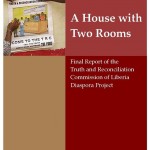Day to Oppose the Use of Child Soldiers
 Today, February 12, marks the eighth anniversary of the entry into force of the Optional Protocol to the Convention on the Rights of the Child on the involvement of children in armed conflict. As IntLawGrrls points out, the U.S. is a party to the protocol (even though it remains one of the only two countries in the world that has not ratified the Convention on the Rights of the Child itself).
Today, February 12, marks the eighth anniversary of the entry into force of the Optional Protocol to the Convention on the Rights of the Child on the involvement of children in armed conflict. As IntLawGrrls points out, the U.S. is a party to the protocol (even though it remains one of the only two countries in the world that has not ratified the Convention on the Rights of the Child itself).
Non-governmental organizations that work to end the phenomenon of child soldiers call the day “Red Hand Day”, and the photo above shows activities in Goma, in Congo DR, marking Red Hand Day in 2008.
An open debate on children and armed conflict in the Security Council last April raised interesting issues. Radhika Coomaraswamy, the Secretary General’s Special Representative for the issue of children and armed conflict emphasized that the abuse and exploitation of children during armed conflict goes far beyond their recruitment as fighters:

